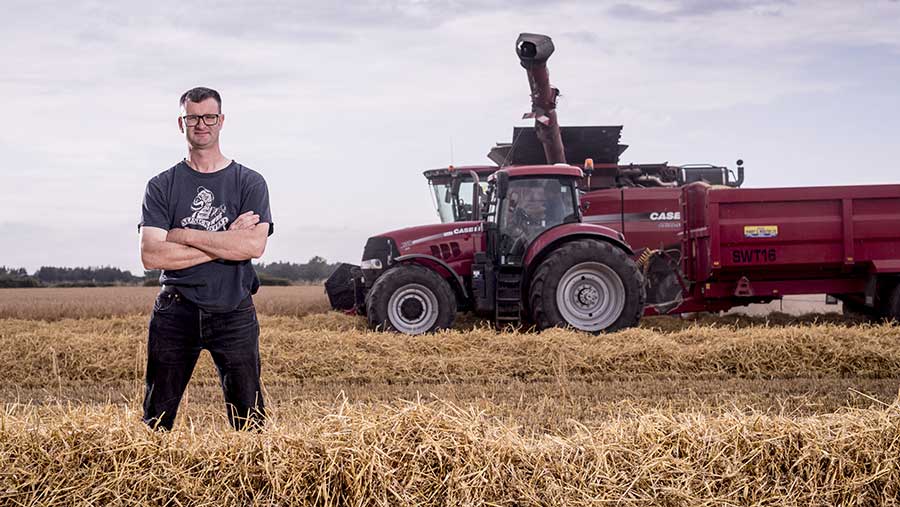Farmer Focus: An expensive and tiring harvest is over
 © Jim Varney
© Jim Varney This has been the harvest that nearly broke me. Talk about stress: only in farming can you have so much disappointment after so much promise. This year’s harvest had its potential decimated in the last six weeks of the growing season.
I spent many days doing yard jobs, watching the quality and the quantity being rinsed out of the wheat and wishing for high pressure as the jetstream failed to move.
The crops in general seemed far too vegetative as they got hold of all their spring nitrogen and grew tall and lush. Anything with any additional “nutrition” (in other words, muck) fell flat as a pancake.
See also: Harvest 2023: Slow progress in snatch and grab harvest
I liken it to a McDonald’s paper straw in a cup of coke: after being hammered continuously by wind and wet, at some point the crop must give.
We say round these parts that it takes a skilled grower to have a big head of wheat to lean the corn but not end up with it rocking over entirely.
We finished only two days later than last year’s doddle of a harvest. This was in part down to some long days and sticking to the mantra:
“If things are going badly, speed up. It may not improve the situation, but it does end the suspense.”
As with most things at this time of year, I am conscious of the fact we are running out of daylight, and we have gone straight into drilling oilseed rape.
Stubble turnips are in every acre that can be double-cropped. I can only see the upside of fattening lambs while at the same point increasing soil fertility for future crops.
I’d like to think we are ticking all the boxes for “regenerative spuds”, whatever they are (anyone seen McCain’s advert?).
No bagged fertiliser is going on the following maize crop, just muck, and only 40kg total nitrogen is going on the spring barley.
We’ve also combined some of the wife’s family’s grain. This was extra work, but the crops were all stood and it’s useful cash to pay for breakages this year.
Our apprentice had the Midas touch – everything he touched broke and ended up as gold for the mechanic.
He was put on the early retirement scheme. Every call out these days is £1,000, and it soon adds up.

